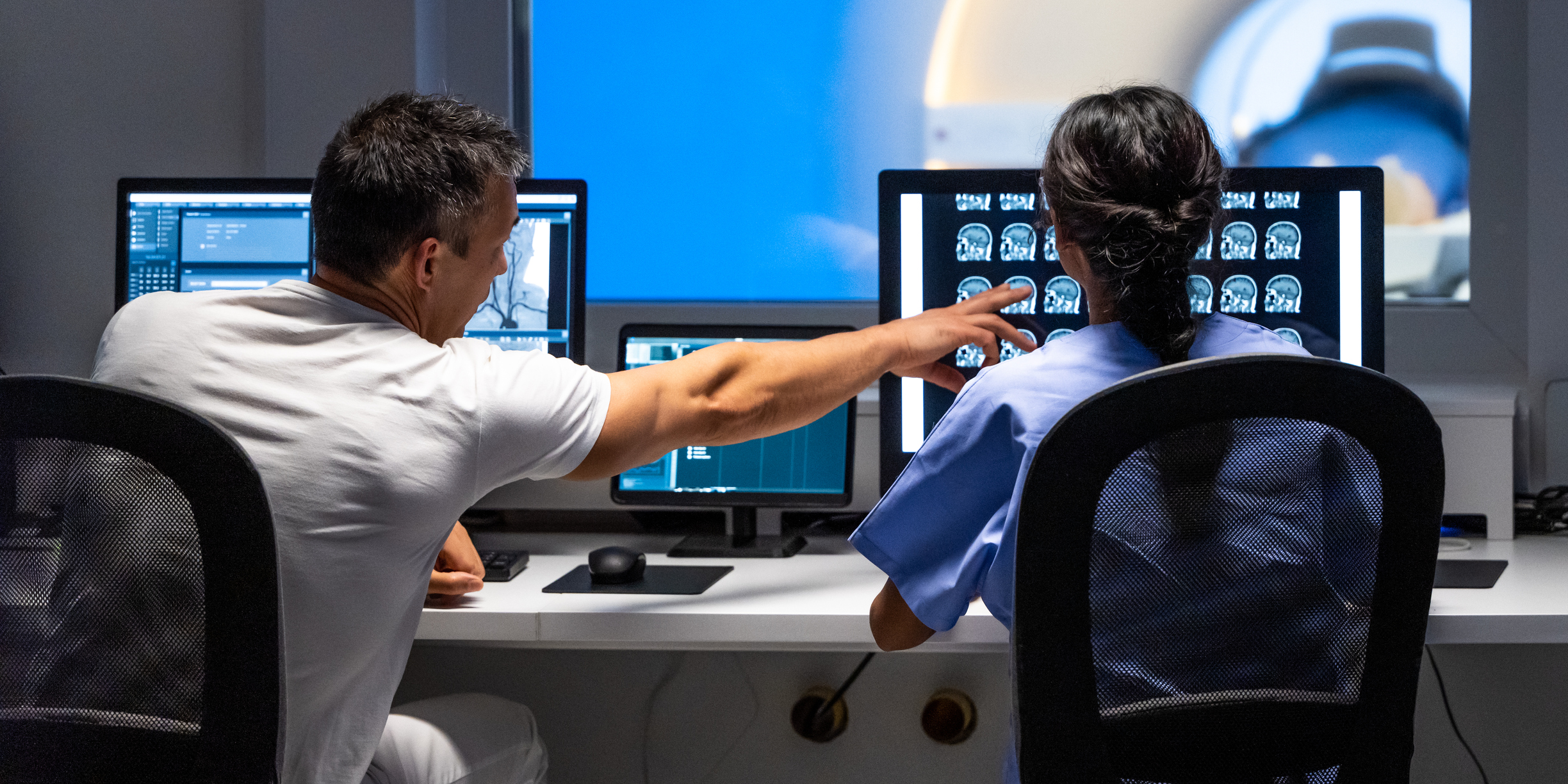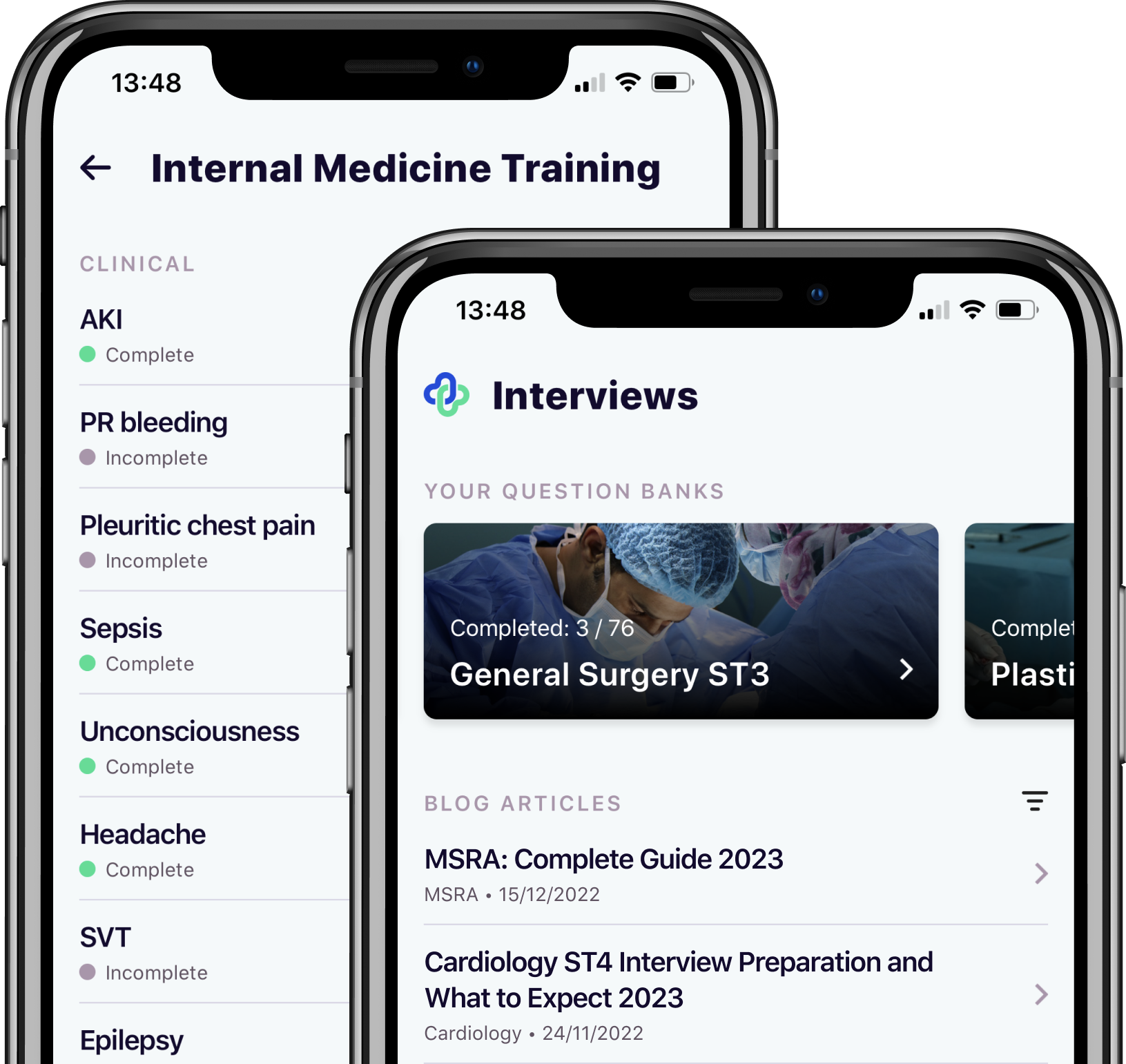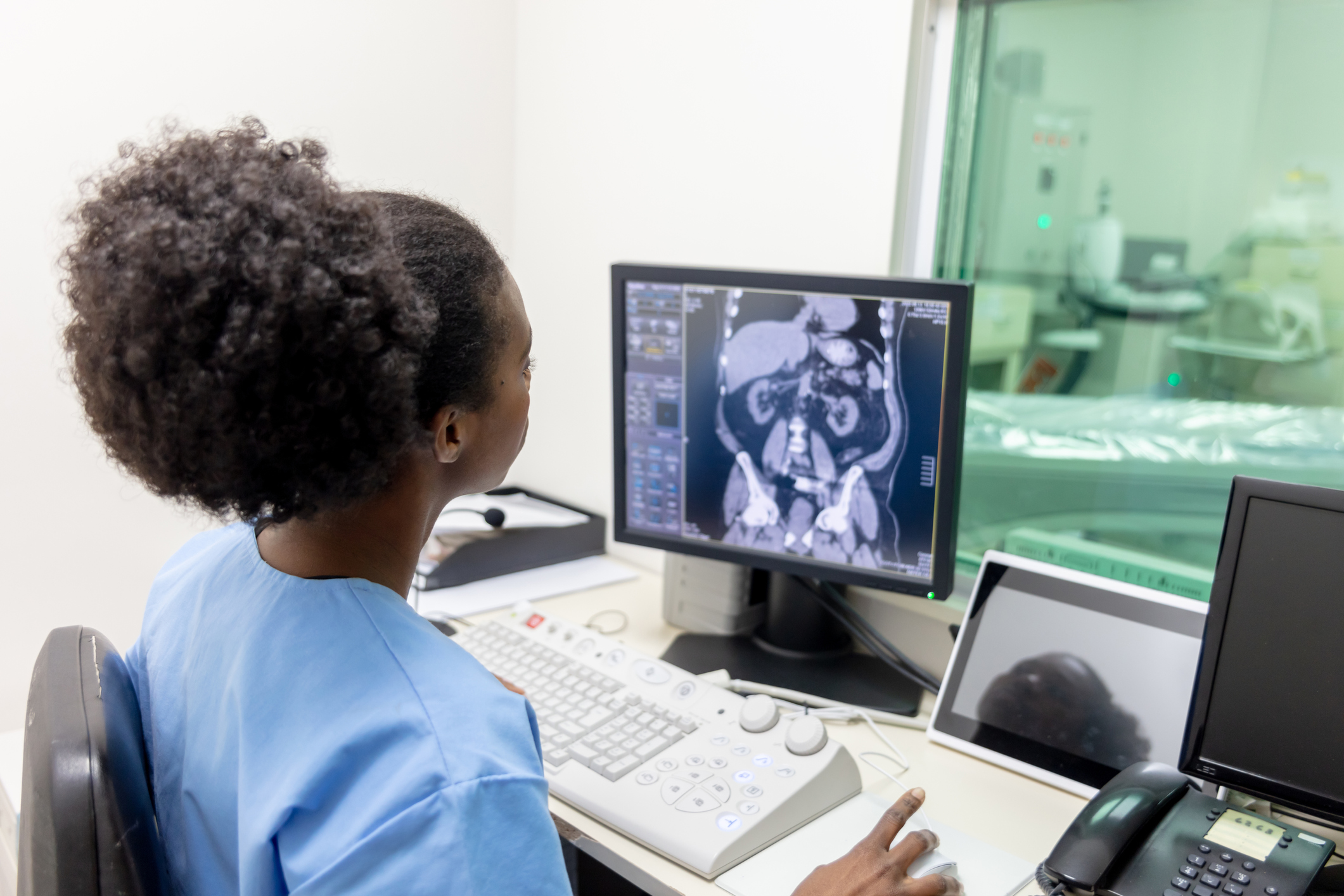
Radiology ST1 Self-Assessment Marking Scheme 2026
The Radiology ST1 self-assessment is a key part of the application process, with candidates required to score their portfolios. This self-assessment score is then combined with the Radiology interview score to rank all candidates.
For 2026, the Radiology ST1 application process has been updated. You’ll still complete your self-assessment and upload evidence online via the ORIEL platform, but parts of your portfolio will now also be assessed during the interview. In Station 1, two of the five domains will be explored in more detail through structured questions, giving you the opportunity to expand on your experiences in person.
As before, your uploaded evidence will be reviewed by consultant radiologists to ensure the self-assessment is accurate. Scores can be moderated and altered if the reviewers feel the evidence doesn’t support your claims. You’ll then have the opportunity to appeal if you feel a moderation was unfair.
To avoid problems, don’t try to overscore yourself, instead, provide robust, official evidence for each domain. While no physical portfolio is required, we recommend keeping a folder (physical or online) with all your achievements and experiences organised, so you can easily refer to them when preparing for your interview.
Radiology ST1 self-assessment criteria
As part of your application for Clinical Radiology ST1, you’ll need to complete a portfolio review and submit supporting evidence to justify the category you select. Each category has descriptors of typical levels of experience, and it’s up to you to use your discretion to decide which best reflects your achievements. Make sure you also upload documentation to support your decision.
For 2026, there has been a change in the self-assessment. The number of domains has been reduced from seven to five. This has been done by merging:
- Teaching and training with teaching qualifications
- Academic achievements with awards and prizes
The complete Radiology ST1 self-assessment criteria is available on ORIEL, but to help you get started we’ve provided a brief overview of the five domains below. The official document is where you’ll find the detailed descriptors and the exact points awarded at each level.
The specific number of points for each level of achievement can be found in the actual Radiology self-assessment document:
- Commitment to radiology
Maximum points for multiple significant exposures to working in a radiology department. - Leadership and management
Maximum points for holding a leadership/management role within a national capacity, relevant to radiology. Few points for local or regional roles, or non radiology specific roles. - Teaching and training
You can score maximum points for holding a formal master’s level teaching qualification or above. A Grade B is awarded for making a major contribution to a national or international teaching programme lasting at least three months. For a Grade C, you’ll need formal evidence of completing at least two days of training in teaching methods. A straightforward way to achieve this is by attending a course like the Medibuddy Teach the Teacher Course. If you prefer a real, interactive learning environment where you can actively engage with tutors and peers, we also offer a 2-day Live Teach the Teacher Course. - Audit and quality improvement
Maximum points for leading two or more completed radiology relevant audits that have resulted in a change in practice. - Academic achievements
Maximum points for a postgraduate research degree, or at least one peer-reviewed publication related to radiology as a first author. Fewer points for oral or poster presentation presented at any level.

Teach the Teacher Course by Medibuddy
This two-day CPD-accredited online course will earn you 12 CPD points on completion. It’s entirely flexible, so you can complete it in two days or multiple sessions over a longer period. On completion of the course, you’ll receive a certificate for your portfolio that is accredited for CCT, interviews and appraisals.
Find out moreRadiology ST1 Self-assessment hints and tips
- Focus on quality over quantity
Achievements are scored within each domain, and there’s a cap for how many points you can earn per category. Rather than only going for small, minor achievements, ensure you have strong, demonstrable evidence for each of the five domains. - Prioritise high-yield activities
Some achievements are quicker to complete but provide significant points. For instance, a second taster week in radiology may give a substantial increase in points with minimal time commitment, compared to long-term projects like a PhD or a national teaching programme. - Align evidence carefully with domain descriptors
At application, you’ll submit supporting evidence for each domain and justify the category you select. Choose the strongest, most relevant piece of evidence for each domain so it clearly demonstrates that you meet the descriptors, and ensure all documentation comes from official sources. - Be prepared to discuss your portfolio at interview
Two of the five domains will be explored in Station 1 of the interview. Make sure you know your achievements well and can link them to the specific questions being asked. It’s not enough to list them, you need to explain your role, impact, and learning. - Keep a clear, organised record
While no physical portfolio is required, having all your achievements and supporting documentation in a single folder (digital or physical) will help you prepare for interview questions and make it easy to reference your evidence if needed.
You will be ranked based on your radiology self-assessment score and interview, so preparing thoroughly for each of these is important when putting together your application. Although it’s not used for ranking anymore and is only used for shortlisting, you’re still required to score a minimum of 201 on each of the components of the MSRA, so preparation for the exam is still as important as ever.
Don’t forget to check out our MSRA Question Bank for your exam preparation and our Radiology ST1 Interview Question Bank, written by previously high-scoring applicants, that will guide you through your interview preparation.
Good luck!
Useful resources:
Radiology ST1 Self Assessment Guidance 2025

Take your subscriptions with you
Our mobile app allows you to access your interview and exam question banks wherever you are.





